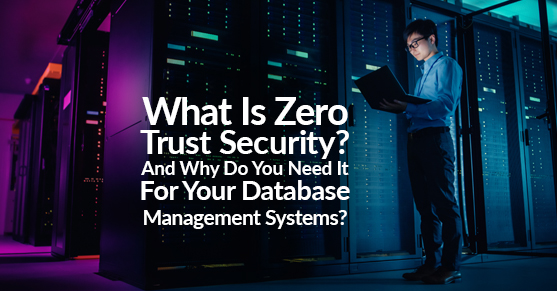What Is Zero Trust Security?
Zero Trust security is a high-standard security model designed to address today’s cyber concerns. This model focuses on verifying the identity of users and devices before granting access to sensitive data and systems rather than assuming access requests are automatically valid. In addition, Zero Trust security uses cloud-based literacy to protect against cyber-attacks and data leaks that traditional security measures such as firewalls and intrusion detection systems cannot. This makes it the ideal security model for database management systems.
The concept of Zero Trust security originated in the early 2000s as a response to the growing threat of cyber attacks and the increased use of mobile devices and cloud-based services. Traditional security models rely on a “perimeter” approach in which a firewall protects the network from external threats, and intrusion detection systems are used to detect and respond to attacks that make it past the firewall. However, it has become increasingly difficult to define and protect a network perimeter with the recent rise in remote personnel, hybrid cloud environments, and ransomware threats. Zero Trust security addresses these issues with a security system that is as mobile as the modern world.
As noted before, one of the key principles of Zero Trust security is that all devices and users must be verified before being granted access to sensitive data and systems. This verification process can include a combination of multi-factor authentication, fingerprinting, and behavioral analysis. For example, a user might be required to enter a password, use a biometric authentication method, and prove that their device has not been compromised before being granted access to a sensitive system. This ensures that the company’s security is not compromised, no matter when or where staff must access databases.
Benefits of Zero Trust Security For Your Database Management Systems
One of the main benefits of Zero Trust security is that it is designed to protect against advanced persistent threats (APTs) and other sophisticated cyber attacks. APTs are attacks designed to evade traditional security measures and remain undetected for a prolonged period. By filtering all devices and users through strict verification protocols, Zero Trust security can detect and respond to these types of attacks more effectively.
Another benefit of Zero Trust security is that it is designed to work in a cloud-based environment. As more and more companies move their data and systems to the cloud, protecting them using traditional security models has become increasingly challenging. Zero Trust security is designed to work in a cloud-based environment by verifying the identity regardless of the source of an inquiry.
In the context of database management systems, Zero Trust security is paramount because it can help protect sensitive data from unauthorized access and breaches. Since database management systems are often used to store sensitive information such as financial data, personal information, and confidential business information, security is of the utmost importance. By implementing Zero Trust security, companies can be sure that this sensitive information is safeguarded.
Additionally, by verifying all users and devices before allowing a query to be executed, Zero Trust security can also help protect against attacks that exploit vulnerabilities in the database management system itself. This makes it possible for the security system to detect and respond to any attempts to exploit SQL injection vulnerabilities before they happen.
Conclusion
Zero Trust security is a modern security model that can help protect sensitive data and systems from cyber attacks and breaches. By setting up integral verification systems, Zero Trust security can detect and respond to advanced persistent threats and other sophisticated cyber attacks more effectively. With Zero Trust security, database management systems safeguard against unauthorized access and attacks that exploit vulnerabilities in the system itself, ensuring that secure information stays that way.
For more questions or more information, please contact us.

